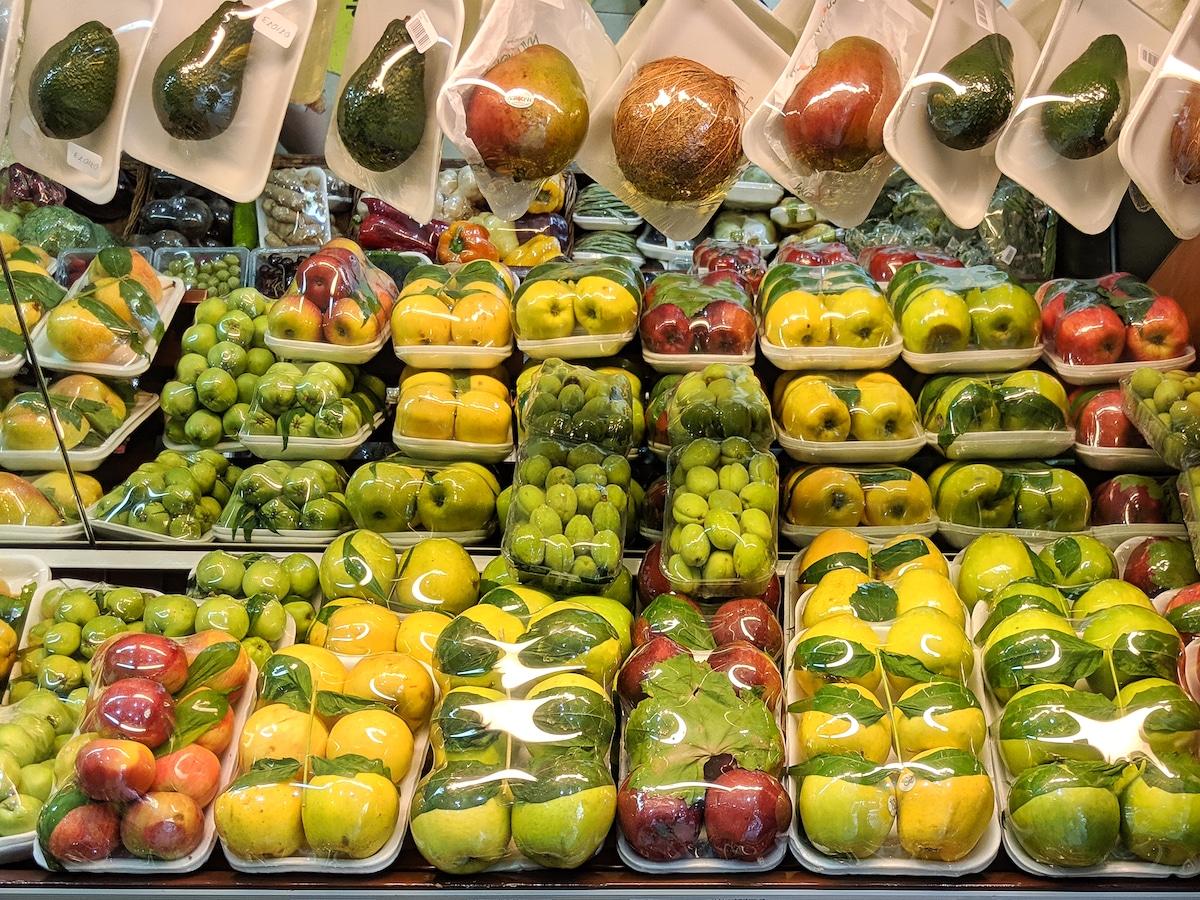
Plastic Packaging on Fresh Fruits and Vegetables Increases Food Waste, Study Finds

Have you ever gone to the grocery store to buy bananas and been confronted with a bunch wrapped in plastic and thought, “Why?” After all, bananas come with their own protective covering that is easy to remove and creates no plastic waste.
UK waste reduction nonprofit the Waste and Resources Action Programme (WRAP) understands your confusion, and, after an 18-month study, it found that plastic packaging and use-by dates on whole, fresh fruits and vegetables increases food waste, The Guardian reported. The study also found that wrapping the produce in plastic does not increase its shelf life and the packaging often forces shoppers to buy more than is needed, thus leading to more wasted food.
WRAP recommended that retailers sell these products loose and without best-before labels, reported the Ulster Grocer.
“While packaging is important and often carries out a critical role to protect food, we have proven that plastic packaging doesn’t necessarily prolong the life of uncut fresh produce,” said WRAP CEO Marcus Gover, as The Independent reported. “It can in fact increase food waste in this case. We have shown the massive potential to save good food from being thrown away by removing date labels.”
WRAP is also seeking the removal of other “unnecessary” single-use plastics under The UK Plastics Pact, such as those used on multiple packages of canned food and sauce packets used in restaurants, reported the Ulster Grocer.
During the WRAP study, broccoli, potatoes, apples, bananas and cucumbers were stored at different temperatures, both in the packaging and without, The Guardian reported. By the researchers’ calculations, every year more than 10,300 tons of plastic are wasted, along with about 100,000 tons of food, due to plastic packaging and use-by dates. That is equal to 14 million shopping baskets worth of food.
About a third of greenhouse gas emissions in the UK are linked to food and drink.
Removing the packaging and labels would stop the circulation of 1,100 garbage trucks worth of plastic, reported the Ulster Grocer.
When it came to the amount of food being wasted, packaging wasn’t found to be as important as people being able to buy the correct amount of food for them and the storage of the food they purchased.
“We found that storing food in the fridge at below five degrees gave days, weeks, and, in the case of apples, months more quality product life,” Gover said, as The Guardian reported. “We found that for most items, the plastic packaging they were sold in made little or no difference to their shelf life.”
WRAP plans to talk with government agencies and the food industry about making loose fruits and vegetables available in stores.
“We are all living with the reality of the climate emergency and the rising cost of living. This new clarity could not be more timely. We need retailers to step up and follow our recommendations so we can achieve real progress in tackling food waste and plastic pollution. This helps save the planet and us money at the same time – a real win-win,” Gover said, as reported by the Ulster Grocer.

 233k
233k  41k
41k  Subscribe
Subscribe 